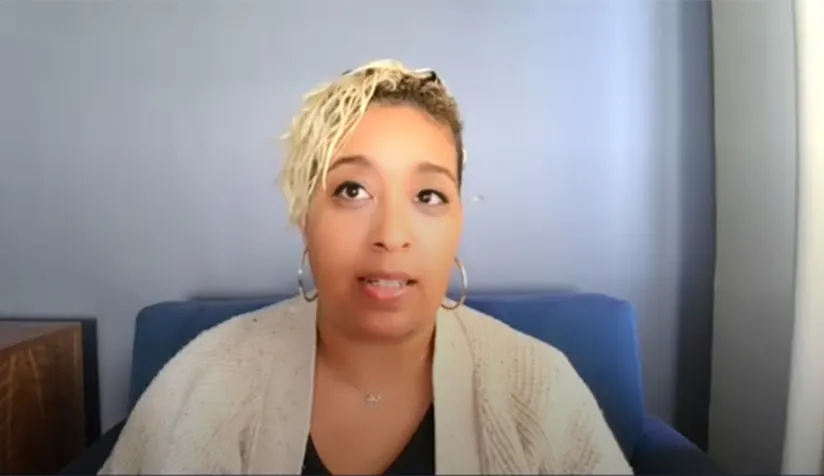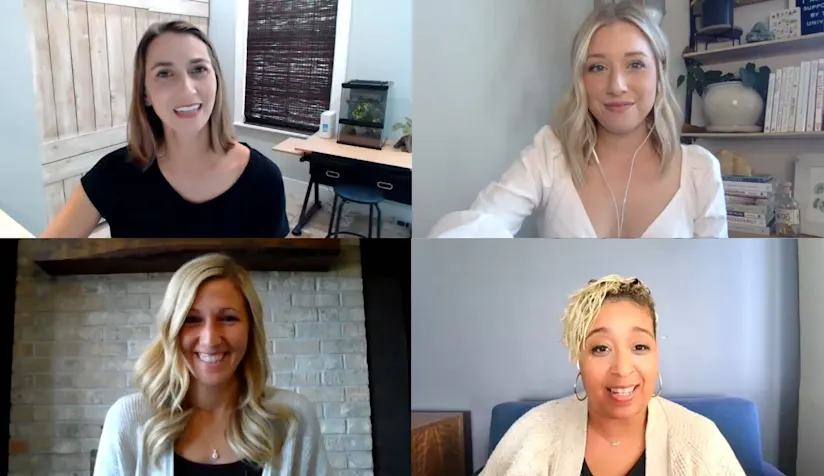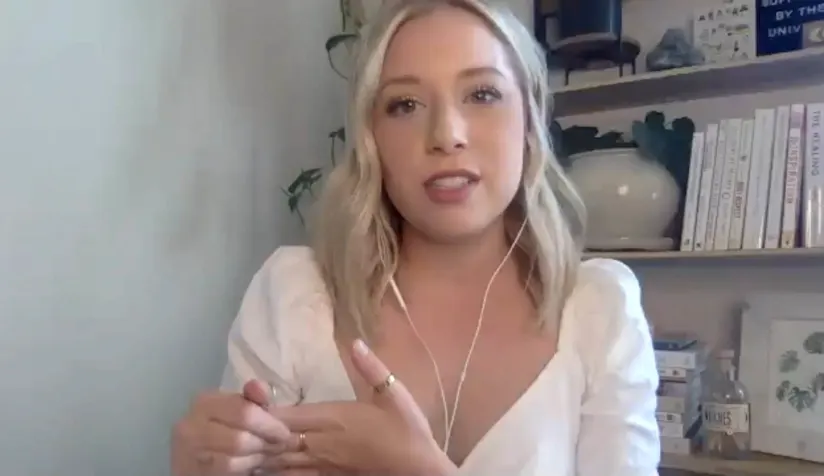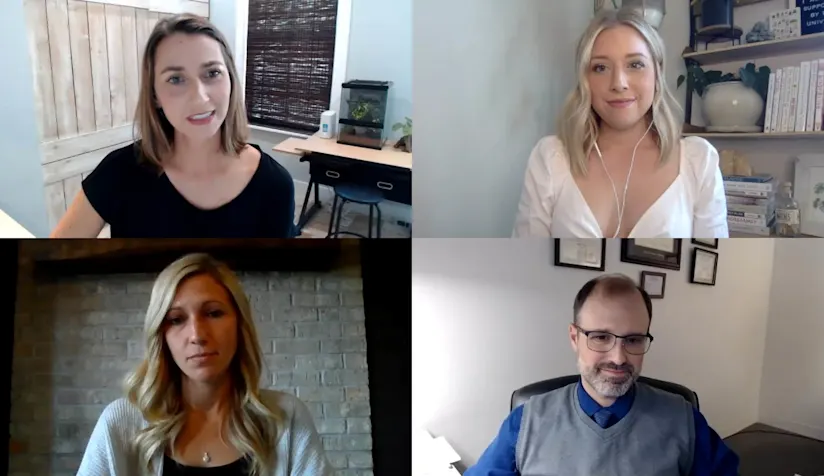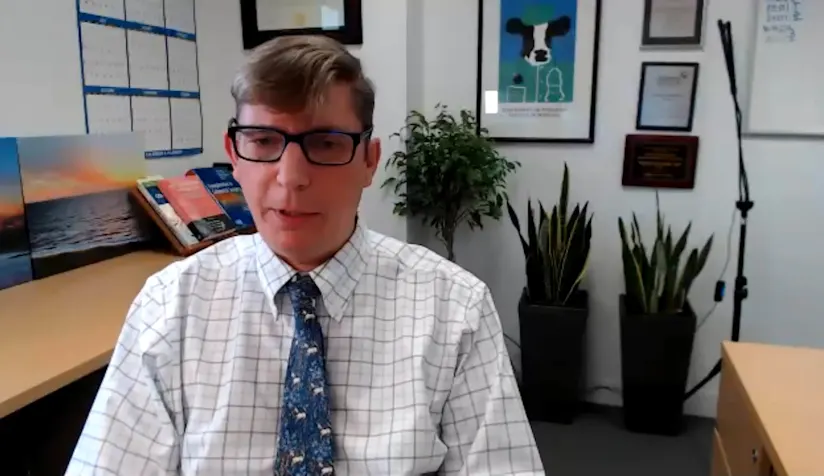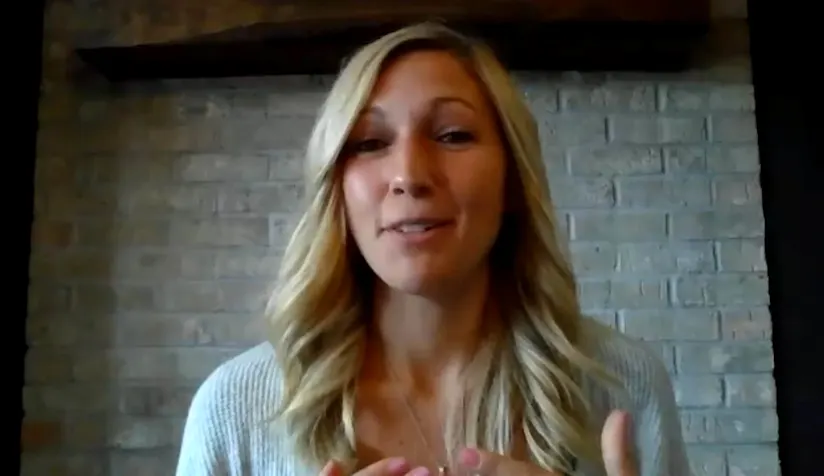奈特:我想回答的事情e most helpful for me during the diagnosis and then directly after was the community piece of like finding other people you can talk to openly, because I think if I had had more people in my life that I knew were going through similar things, I would have maybe figured out treatments that worked for me sooner or just found out more about my my condition, because Google was a scary place when I was first diagnosed and getting diagnosed.
It was really helpful hearing from my mom, who has IBD, because it just felt like a more compassionate way to learn about my illness. I think seeking community sooner would have been really helpful, knowing that was even out there. I think the other piece that would have been really helpful, too, is just that it's OK to keep pushing for answers and keep pushing for second, third, fourth, fifth opinions. I went to so many different doctors before someone actually listened to, me gave me a colonoscopy.
I was even told at 20, 21 years old, "Oh, you're too young to need one?" I was like, "I've been asking for this test. I'm not going to be mad. Like, just give me the test." And so knowing it's OK to stand up for yourself and that, yes, the doctors have incredible education, but you've lived in your body forever and it's OK to feel like you deserve more answers and more help than you're getting from your current care team.
Brooke: I knew a couple of people with Crohn's, and I think Nat really hit the nail on the head with community. But also I wish that I had known about extra intestinal manifestations. I wish that I had known that there were other things that can be triggered by having UC. And that will create complications in your life.
我基地so wish that I had known the difference between a GI and a person who specializes in inflammatory bowel disease, because I was going to people who just weren't well-versed in the disease and they were going off kind of what they may have known or had taken a quick course in, but I needed someone who was well-versed and was really passionate about making sure that a patient with UC had all of their options open to them.
I feel like if I had been seeing someone who was an IBDologist, I probably would have known that I could have had surgery earlier. I probably would not have gotten as sick as I got and had all the other things that had happened along with that happen to me. I think the course of my family with, you know, the trajectory that we had would have been completely different, had I had a specialist who was really invested in my particular disease and situation.
Mikayla: The biggest thing is just to find a doctor that is willing to listen to you and not brush you off and not tell you it's just in your head. I'm actually dealing with this with a couple of family members who are starting to have some IBD symptoms, and they just keep getting the run around by their same doctor. I'm like, "You have to go to a different doctor. It's OK. Not every doctor is right for you, and you have to find the one that's right for you." The more knowledge you have about your condition, you're the expert of your body.
So looking more into it and asking all of the questions like find the doctor that's willing to run the test. Don't be afraid. I know that I struggled. You're kind of intimidated, you know you go into this office and you're scared and you don't know what's wrong with your body and you get all of this blah blah blah information about what's going on, what the doctor thinks is going on and sometimes put down. If they tell you that it's all in your head, you tend to shut down a little bit. That happened to me for years.
Now I have a younger cousin who's going through some stuff right now and she's getting the runaround and I'm like, I'm going to have to go with you to one of your appointments, because you are scared and you're not wanting to ask the hard questions.
So my biggest thing is just be your own advocate, you know your body, you know if you're stressed out or not and push for the test. If your doctors aren't willing to do a colonoscopy or just do a simple blood draw, maybe that's not the right doctor for you.

